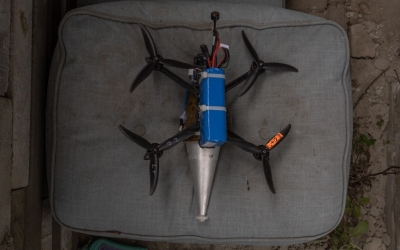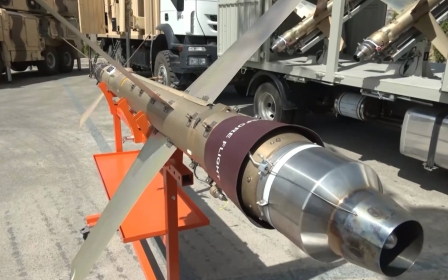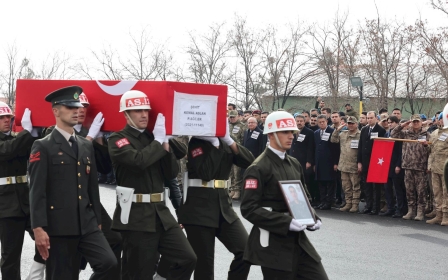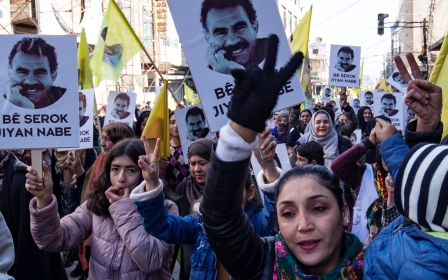Turkey steps up pressure on PUK's Bafel Talabani over alleged PKK ties
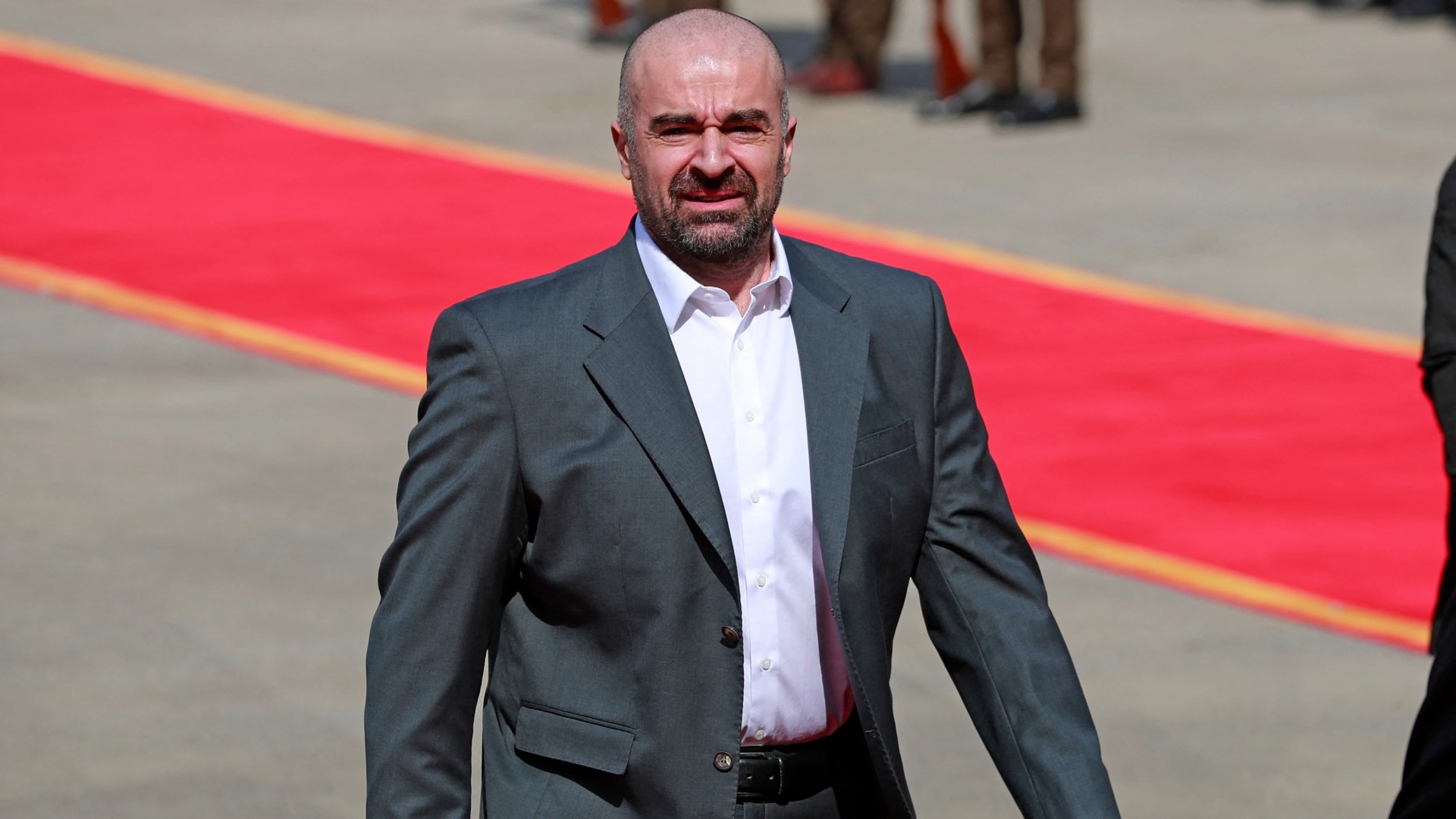
Turkey has decided to intensify its pressure on Bafel Talabani, the chairman of the Patriotic Union of Kurdistan (PUK), due to his alleged cooperation with Kurdish armed groups deemed terrorist by Ankara, Turkish sources told Middle East Eye.
Tensions between Talabani’s PUK, the second-largest party in the Iraqi Kurdistan Regional Government (KRG), and Ankara have been rising over the past two years, with Turkey accusing him of collaborating with PKK-linked groups in Syria.
Recent developments, however, have shifted the balance in Turkey’s favour.
Last year, Ankara banned flights to northeastern Iraq’s Sulaymaniyah, a PUK stronghold, and senior Turkish officials, including President Recep Tayyip Erdogan and Foreign Minister Hakan Fidan, have repeatedly issued strong condemnations specifically targeting Talabani.
In recent months, Turkey has accelerated its military operations against the PKK in northern Iraq, closing in on the Metina region, previously a stronghold of the Kurdish armed group. This progress has been made in collaboration with the KRG and Baghdad, which has softened its criticism of Turkish military operations.
New MEE newsletter: Jerusalem Dispatch
Sign up to get the latest insights and analysis on Israel-Palestine, alongside Turkey Unpacked and other MEE newsletters
A Turkish source familiar with the situation told MEE that senior PKK members have been in Sulaymaniyah and received training there, despite public pressure on the PUK leader.
Earlier this year, Erdogan even claimed that the PKK has a hospital in the city. “We closely monitor PKK activities in the vicinity of Sulaymaniyah, and possible threats are being eliminated,” the source said.
In March, Turkey's national intelligence service “eliminated” Gulsun Silgir, aka Sara Hogir Riha, a senior PKK member responsible for youth camps, near Sulaymaniyah.
Turkish security sources told MEE that Talabani has been warned of “operational consequences” if he does not sever ties with the PKK.
These sources, however, declined to specify what the consequences would be, but recalled Ankara’s air campaign last year targeting PKK leaders in Sulaymaniyah.
They did not comment on whether PUK elements would be directly targeted.
In 2023, Turkey killed at least 15 senior PKK figures, most of them in Sulaymaniyah, through military drone operations.
PUK challenges
KRG security sources, speaking to MEE on condition of anonymity, said that Turkey’s ongoing operations targeting PKK strongholds in northern Iraq have put pressure on the PUK.
“Bafel could not find a way out through the Americans and Iranians. This is real pressure,” said a security source in the KRG, which is dominated by the PUK’s rival, the Kurdistan Democratic Party (KDP).
Earlier this month, Turkish media said that Talabani had fled Iraq due to Turkish pressure, a claim denied by a KRG security source.
Last week, Talabani attended a meeting in Sulaymaniyah with Iraqi National Security Adviser Qassem Eremi to discuss Turkey's operations.
PUK sources told MEE that internal splits within the party have weakened Talabani and his supporters. They added that Lahur and Qubad Talabani, Bafel’s cousin and brother who favour good relations with the KRG and Turkey, are growing stronger.
According to PUK sources, in the next Kurdistan elections most of the PUK’s military wing will support Lahur, who in January established his own party, the People’s Front, to rival Bafel.
“If the elections take place, the political picture in the Kurdistan region will change. The destabilisation of this region through sectarian stubbornness turns it into a playground for the PKK and Iran,” said a PUK source. “Bafel and his team are also aware of the axis shift within the PUK.”
Turkish security sources told MEE messages are being sent to Bafel Talabani in indirect talks conducted through intelligence channels and Qubad Talabani, who is also the deputy prime minister of the KRG.
The sources said Bafel Talabani’s requests to hold direct meetings with Turkish counterparts have been rejected due to his alleged ties to the PKK.
However, opposition to Turkish operations in Iraq persists, as indicated by a statement from Iraqi army spokesman Major-General Yahya Rasool following a National Security Council meeting, which described Turkey’s operations against the PKK in the KRG region as a violation of Iraqi sovereignty.
MEE sent questions to Bafel Talabani through PUK spokesperson Sadi Pira but did not receive a response.
“The PUK is not against Turkey and does not want to fight with Turkey,” Pira previously told VOA Kurdi, denying allegations of cooperation with the PKK.
Middle East Eye delivers independent and unrivalled coverage and analysis of the Middle East, North Africa and beyond. To learn more about republishing this content and the associated fees, please fill out this form. More about MEE can be found here.


